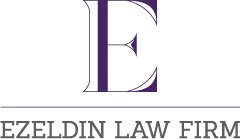Best Brokerage Lawyers in Illinois
Share your needs with us, get contacted by law firms.
Free. Takes 2 min.
Free Guide to Hiring a Real Estate Lawyer
Or refine your search by selecting a city:
List of the best lawyers in Illinois, United States
About Brokerage Law in Illinois, United States
Brokerage law in Illinois covers the legal framework surrounding the services of brokers who facilitate transactions between buyers and sellers in various markets. This most commonly refers to real estate brokers, business brokers, and insurance brokers, but can also include stock and commodities brokers. Illinois brokerage law establishes requirements for licensing, conduct, fiduciary duties, commissions, disclosures, and dispute resolution. Adhering to Illinois statutes and regulations is crucial to avoid penalties, lawsuits, or loss of license. Anyone engaging in brokerage services or seeking to use a broker’s services should understand the unique legal requirements in the state.
Why You May Need a Lawyer
There are various situations where legal help in brokerage matters becomes important. Common scenarios include disputes over brokerage commissions, allegations of broker misconduct or negligence, concerns about conflicts of interest, buyer or seller complaints regarding a broker’s disclosures or actions, or questions about licensing compliance and regulatory investigations. You may also need legal assistance when navigating complex brokerage agreements, enforcing or challenging contracts, or responding to administrative actions from Illinois licensing authorities. A lawyer can help protect your interests, interpret applicable regulations, and represent you in negotiations or legal proceedings.
Local Laws Overview
Illinois has specific state statutes and regulations that govern brokerage activities. The Illinois Real Estate License Act of 2000 is the primary law overseeing real estate brokers, managing licensing requirements, continuing education, and professional conduct. Brokerages and individual brokers are subject to the oversight of the Illinois Department of Financial and Professional Regulation (IDFPR). Brokers must act in the best interest of clients, make required disclosures, and avoid conflicts of interest. Illinois also has consumer protection laws relevant to brokerage, including those addressing fraud, misrepresentation, and fair business practices. Violations can lead to fines, license suspension, or legal claims. Other types of brokers, such as insurance or securities brokers, are subject to the Illinois Department of Insurance or federal agencies like the Securities and Exchange Commission, depending on the type of brokerage service provided.
Frequently Asked Questions
What qualifications are required to be a licensed broker in Illinois?
To become a licensed broker, you must meet education requirements, pass an exam, and obtain a license through the Illinois Department of Financial and Professional Regulation. The requirements differ for real estate, insurance, and securities brokers.
Are buyers or sellers required to use a broker in Illinois?
No law requires buyers or sellers to use a broker, but many transactions benefit from broker representation, especially for complex negotiations or compliance with local regulations.
How are brokers paid for their services?
Most brokers work on commission, which is typically a percentage of the sale or transaction amount. Payment terms must be clearly stated in the brokerage agreement.
What is a broker’s fiduciary duty?
Illinois law requires brokers to act in their client’s best interests. This includes loyalty, full disclosure, confidentiality, and the duty to disclose material facts.
Can a broker represent both the buyer and the seller?
This is called dual agency. It is allowed in Illinois with proper disclosure and written consent from both parties, but there are specific restrictions and obligations imposed to prevent conflicts of interest.
What should I do if I have a dispute with my broker?
First, try to resolve the issue informally. If this is not successful, review your agreement, consider mediation or arbitration if provided for, or consult with an attorney to discuss legal options.
How do I file a complaint against a broker?
File complaints against licensed brokers with the Illinois Department of Financial and Professional Regulation. Provide supporting documentation and details regarding the misconduct or violation.
What legal protections are available for brokerage clients?
Clients are protected by Illinois consumer fraud laws, the Real Estate License Act, and licensing regulations. Remedies may include license revocation, fines, or civil lawsuits for damages.
Can a broker’s license be suspended or revoked?
Yes, if a broker violates licensing laws, regulations, or ethical standards, their license can be suspended or revoked following an investigation and administrative hearing.
Is broker malpractice covered by insurance in Illinois?
Some brokers are required to carry errors and omissions insurance to protect against claims of negligence or misconduct. The type and amount of insurance may vary based on the field of brokerage.
Additional Resources
Consider reaching out to the following resources for more information or assistance with brokerage matters in Illinois:
- Illinois Department of Financial and Professional Regulation (IDFPR)
- Illinois Real Estate Administration and Disciplinary Board
- Illinois Department of Insurance
- Illinois State Bar Association
- Chicago Association of Realtors or your local REALTOR association
- Better Business Bureau (BBB) of Illinois for broker complaints
- Consumer Protection Division of the Illinois Attorney General’s office
Next Steps
If you need legal assistance with a brokerage matter in Illinois, start by gathering all relevant documents, such as contracts, correspondence, complaints, and transaction records. Research local lawyers or law firms with expertise in brokerage law. Schedule a consultation to discuss your issue and learn about your options. Many attorneys offer initial consultations, which can help you assess the best path forward. If you are a broker, ensure compliance with all relevant Illinois laws and stay up-to-date through continuing education and professional associations. Whether you are a client or a practitioner, seeking timely legal advice can help protect your rights and prevent costly disputes.
Lawzana helps you find the best lawyers and law firms in Illinois through a curated and pre-screened list of qualified legal professionals. Our platform offers rankings and detailed profiles of attorneys and law firms, allowing you to compare based on practice areas, including Brokerage, experience, and client feedback.
Each profile includes a description of the firm's areas of practice, client reviews, team members and partners, year of establishment, spoken languages, office locations, contact information, social media presence, and any published articles or resources. Most firms on our platform speak English and are experienced in both local and international legal matters.
Get a quote from top-rated law firms in Illinois, United States — quickly, securely, and without unnecessary hassle.
Disclaimer:
The information provided on this page is for general informational purposes only and does not constitute legal advice. While we strive to ensure the accuracy and relevance of the content, legal information may change over time, and interpretations of the law can vary. You should always consult with a qualified legal professional for advice specific to your situation.
We disclaim all liability for actions taken or not taken based on the content of this page. If you believe any information is incorrect or outdated, please contact us, and we will review and update it where appropriate.
Browse brokerage law firms by city in Illinois
Refine your search by selecting a city.

















